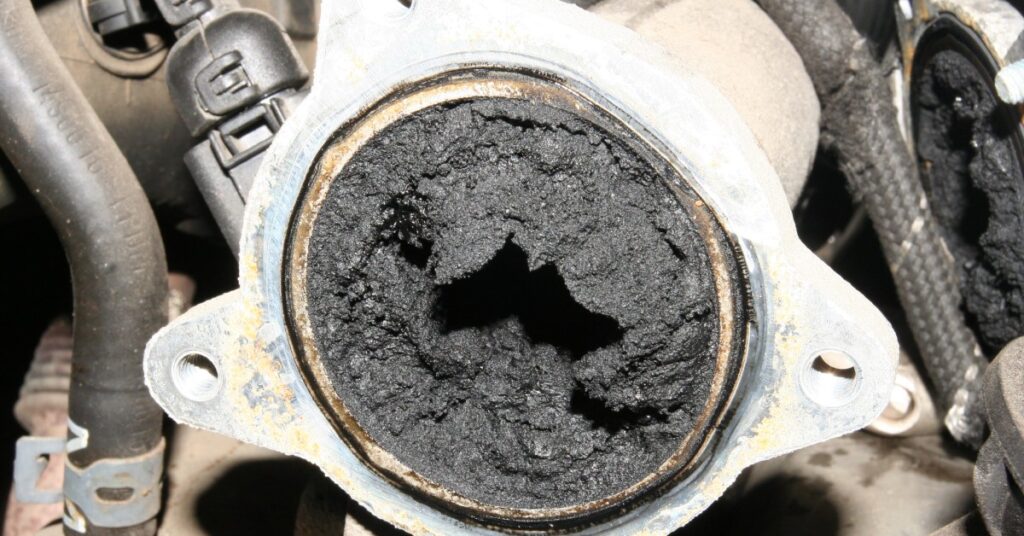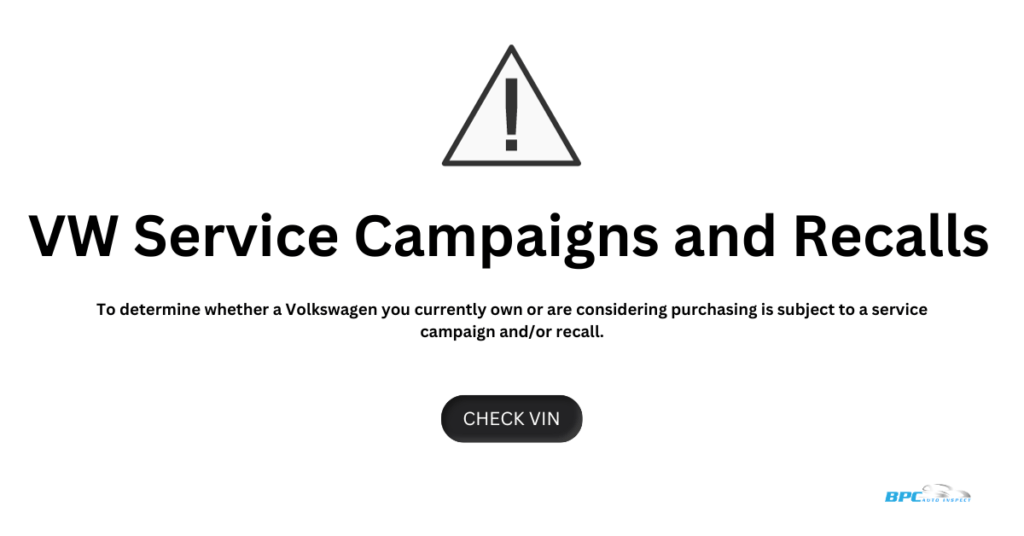VW Amarok Problems: 7 Issues & Should You Buy One – A comprehensive look at common concerns with the VW Amarok.
You can use the links below to jump to the section for common VW Amarok problems.
In this article
Common Issues and VW Amarok Problems
If you happen to be behind the wheel of a VW Amarok equipped with a 2.0L bi-turbo diesel engine or referred to as a 2.0L twin-turbo intercooled diesel engine you might already know about the possible complications that could arise with the injectors, turbocharger and EGR valve. These complications can lead to troubles such, as performance, higher fuel consumption and even potential engine breakdown.
If you’re experiencing any of these problems, there are a few things you can do to fix them.
EGR Valve Failure
The EGR (Exhaust Gas Recirculation) valve plays a role in redirecting exhaust gases into the engine to reduce emissions.

Located in the exhaust system the EGR valve comes into contact with dirty exhaust gases over time and can cause carbon deposits to accumulate on the valve, resulting in the valve sticking open or closed.
The photo above, taken by Moosealope, shows the ERG valve intake manifold clogged with carbon deposits.
If you experience idle issues, poor performance, increased fuel consumption, engine stalling or the engine management light turning on, check your EGR valve as soon as possible. The symptoms are similar to signs of a PCV valve failure in a VW Tiguan.
The Following Measures Will Avoid EGR Issues and Failure:
- Regularly inspect the valve for carbon buildup or corrosion
- Clean it every 50,000 to 80,000 kilometres
- Avoid driving in stop-and-go traffic as it contributes to carbon buildup
- Use high-quality diesel fuel
Also, make sure to operate your vehicle within the temperature range recommended by the manufacturer. Some owners fit a Crankcase Catch Can with a pre-filter like in my Ryco Catch Can review.
Diesel Particulate Filter (DPF) Failure
The DPF filter’s job is to capture soot particles from the exhaust system, but when it becomes clogged, it can result in a loss of engine power, smoke emission and a warning light coming on.
Common Reasons Why the DPF Filter Gets Clogged
Trips in stop-and-go traffic don’t allow the DPF to reach the necessary high temperatures for burning off the soot and cause the soot to accumulate and block the filter. If you don’t get regular oil changes or use the wrong oil type, it can contribute to DPF clogging as well. A faulty EGR valve plays a role in controlling soot production by the engine. If this valve is defective it can cause increased soot production that leads to DPF clogging. Additionally, road debris or overheating can cause damage, to the DPF.
If Your VW Amarok’s DPF Filter Is Clogged, You Might Experience Some of These Signs:
- Check engine light – The check engine light illuminates when there is an issue, with the DPF
- Reduced engine power – The engine might lose power if the DPF is blocked
- Soot emission – You may notice soot coming out of the exhaust pipe
- Rough idle – The engine may run unevenly if the DPF is obstructed
If you observe any of these indications it’s crucial to have a qualified mechanic inspect your vehicle’s DPF filter promptly. A blocked DPF can potentially harm your engine if left unaddressed.
Here Are Two Preventive Measures You Can Take to Avoid Clogging Your VW Amarok’s DPF Filter:
- Change the oil – Using the type recommended by the manufacturer
- Minimize short trips – If you must make short trips, try to balance it with a longer trip so you can drive at higher speeds and allow the DPF to reach temperatures necessary for burning off accumulated soot.
Oil Consumption
There have been reports of some new V6 Amarok diesel experiencing higher than-usual oil consumption, including some reports in the range of 2-3 litres per month. However, it’s important to consider some context:
Severity: Oil consumption is not always an immediate cause for alarm. Some oil usage is normal, especially in a new engine during the break-in period (the first few thousand kilometres). It’s generally recommended to monitor oil levels regularly during this time.
Variability: Reports of specific oil consumption vary and some owners haven’t reported any excessive oil usage with their V6 Amaroks. Driving habits, towing, and terrain can also influence oil consumption.
Forum reports: Online forums, while valuable for anecdotal information, may not always reflect a statistically significant sample size. Some owners who experience problems are more likely to post online than those who don’t.
Here are some resources to help you get a better understanding of the situation:
4×4 Community Forum: This forum has several threads discussing oil consumption in V6 Amaroks, including reports of higher-than-usual usage:
Here’s an email I received from a company owner who bought two for their business:
G’day Craig.
Great write up on the Amarok. We bought two brand new V6 diesels.
One used a lot of engine oil up to approx 50,000 kms, the other is still using 2 – 3 ltrs per month of engine oil.
Apparently VW say it’s within acceptable usage!
I don’t think the rotary engines use this much oil😁
Maybe make a note about the high oil usage in these engines
Paul
Kind regards.
Hi Paul,
Wow! Thanks for taking the time to give me a heads-up on your experience. You’re right, that’s a lot of oil!
New engines can use more oil during the break-in period (typically the first 5,000-10,000 km).
My advice is:
Get the dealer to perform an oil-consumption test to determine whether the vehicle performs outside manufacturer specifications. Take note of fuel consumption too.
If a car consumes oil under warranty, many consumer reports believe the manufacturer should cover the repair costs for current owners and pay to top off the oil between changes – and not just improve the engine’s design for future buyers.
Also, if consumers are denied repairs and rebuilds on engines that consume too much oil, those cars usually end up unloaded onto used-car lots because owners get sick of adding oil. That passes the problem on to the next owner.
And yes, Toyota does still seem the benchmark.
Kind Regards,
Craig Jones
BPC Auto Inspect
Volkswagen Official Website: The official Volkswagen website provides owner’s manuals for various models, including the Amarok. The manual should contain information about expected oil consumption and oil check intervals.
Volkswagen Authorized Service Center: Contacting a Volkswagen authorized service centre is the best way to get professional advice on your specific vehicle. They can assess your oil consumption and determine if it’s within normal limits or if there may be an underlying issue.
Ultimately, if you’re concerned about the oil consumption in your V6 Amarok, it’s best to consult your authorized service centre for a proper diagnosis and advice.
Water Pump Failure
The water pump has a role in circulating coolant to keep your engine cool. If it malfunctions it can lead to engine damage.
Reasons for Water Pump Failure in a VW Amarok Include:
- Age and wear – Like any device, the water pump naturally wears out over time. The impeller, responsible for circulating coolant may become worn or damaged leading to leaks or complete failure
- Corrosion – Since the water pump is located within the engine area it is exposed to corrosive fluids. Over time this exposure can cause corrosion that results in leaks or eventual failure
- Debris – It’s not uncommon for debris like dirt or metal shavings to find its way into the water pump mechanism and compromise its functionality
If Your VW Amarok Experiences Water Pump Failure, You May Encounter Some of These Indicators:
- Coolant leakage – The noticeable indication of a water pump issue is coolant leakage. The leak might occur from either the pump itself or its connecting hoses
- Engine overheating – A failed water pump hampers coolant circulation leading to engine overheating and possible blown head gasket
- Low coolant level – If there’s a leak in the water pump the coolant level, in the reservoir might drop
- Check engine light – A functioning water pump could trigger the check engine light to illuminate
Typically a water pump has a lifespan ranging from 80,000 to 120,000 kilometers. However, it’s crucial to have your vehicle’s water pump inspected every service for signs of leaking, especially as it reaches the end of its lifespan.
Drive Belt Failure
The drive belt is responsible for powering components such as the alternator, power steering pump and other accessories. Should this belt break, not only can it cause these accessories to fail but potentially harm your engine. Typically a drive belt has a lifespan of, around 80,000 to 100,000 kilometres. However, replace the belt every 60,000 kilometres to be on the safe side.
Here Are a Few Reasons Why the Drive Belt in a VW Amarok Might Wear Out Prematurely:
- Improper installation – If the drive belt is not installed correctly it can increase the chances of failure
- Incorrect belt tension – When the belt is either too tight or too loose it can put strain on it and lead to failure
- Debris accumulation – Dirt, rocks or other debris can get trapped in the belt and cause it to wear out faster than expected
- Normal wear – Over time the drive belt naturally wears out due to use. The rubber material may become brittle. Develop cracks, which ultimately result in failure
- Manufacturing defect – Although highly unlikely there is a possibility that some drive belts may have defects originating from their production
If Your VW Amarok’s Drive Belt Fails, You Might Notice Some of These Symptoms:
- Squealing noise from the belt when the engine is running
- Slipping sensation as you operate the engine
- Shredding of the belt if it has failed entirely
Moreover, there is a known issue with the VW design that can contribute to the failure of the belt. This concerns a flaw in the timing belt cover that allows contact, between the belt and timing belt. If this were to occur the drive belt could become torn resulting in engine damage.

Volkswagen has implemented a recall, and vehicles affected by this concern should have their timing belt cover replaced. If you happen to own a VW Amarok it is essential to verify if your vehicle falls under this recall. You can easily check for service campaigns and recalls by entering your VIN on the Volkswagen website.
Injector Problems
Injector issues are often attributed to two problems, clogging and failure. When injectors get clogged it can lead to an engine and misfires. On the other hand, failed injectors can result in power loss and potential stalling.
To rectify these injector problems you’ll need to either clean or replace them. Fortunately, this procedure is relatively straightforward. Doesn’t cost much.
Turbocharger Problems
Turbocharger issues can encompass boost leaks, malfunctioning turbocharger bearings and turbine blade damage. Boost leaks may lead to a decrease, in engine power. When turbocharger bearings fail, noise and smoke emissions from the turbocharger can occur. Complete failure of the turbocharger can be caused by damage to the turbine blades.
To rectify turbocharger problems it is necessary to have an inspection and either repair or replace the turbocharger.
Is the VW Amarok Suitable for Your Requirements and Budget?
Deciding whether or not the VW Amarok is right for you depends on your needs and financial considerations. If you require an off-road vehicle with towing capabilities then the Amarok might be a choice. However, it is crucial to take note of suspension concerns along, with components. Advantages and Disadvantages
Advantages:
- It’s an off-road vehicle
- There are engine options to choose from
- It has a payload capacity
- Capable of towing, up to 3.5 tonnes
- The interior offers space
- Good fuel efficiency
Disadvantages:
- There may be suspension issues
- Repair expenses can be costly
- Some reliability concerns have been raised
- It may not offer the refinement as competitors
Should I Buy a VW Amarok?
Ultimately deciding whether to purchase a VW Amarok is a choice. If you need an off-road vehicle that can handle towing tasks the Amarok provides appealing features. However, it’s important to consider any issues that may arise and plan for maintenance costs accordingly. If you’re considering buying a VW Amarok here are some factors to keep in mind:
- Intended Use – If your plans involve off-road adventures or frequent towing the Amarok is worth considering. However, if your primary use will be commuting or city driving there might be vehicles suited to your needs
- Budget Considerations – Remember that the Amarok is more expensive in terms of cost and ongoing maintenance expenses. If you have budget constraints exploring vehicle options might be more beneficial
- Driving Style – For those who frequently engage in, off-road driving activities the suitability of the Amarok may vary depending on your requirements
The suspension system of the VW Amarok sometimes faces problems. Fixing them can be quite expensive. Before making a buying decision I recommend comparing different utes reviewed by Australian consumers and test-driving different models to ensure it meets your specific needs.
*Some links in this post are affiliate links, which means we may earn a commission at no extra cost to you. Please refer to our disclaimer for more info.




